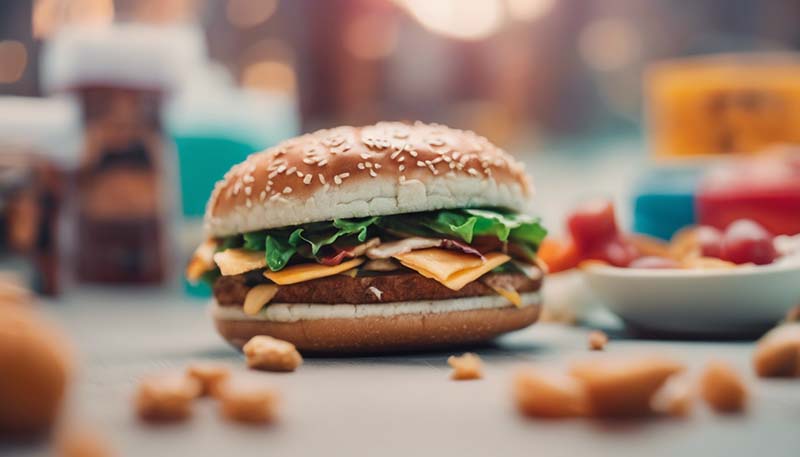Snacking Smart: Healthy Alternatives to Junk Food
Snacking Smart: Healthy Alternatives to Junk Food
Snacking is a common habit that can either support or sabotage your health goals. While junk food may offer a quick fix for hunger, it often leads to a cycle of unhealthy eating. In this article, we'll explore why it's important to snack smart, the pitfalls of junk food, and provide you with a list of healthy alternatives that can satisfy your cravings without compromising your health.
The Importance of Snacking Smart
Snacking between meals can be a useful strategy to maintain energy levels and prevent overeating at meal times. However, not all snacks are created equal. Choosing the right snacks can help you:
- Meet your daily nutritional needs.
- Control hunger and prevent overeating.
- Support a healthy weight.
- Boost your immune system.
- Improve your overall well-being.
The Pitfalls of Junk Food
Junk food, often high in calories, sugar, salt, and unhealthy fats, can lead to a variety of health issues, including:
- Weight gain and obesity.
- An increased risk of heart disease.
- High blood pressure and stroke.
- Diabetes.
- Poor digestive health.
- Nutritional deficiencies.
Moreover, the addictive nature of junk food can make it difficult to break the cycle of unhealthy eating.
Advertisement
Healthy Snack Alternatives
Here is a list of healthy alternatives to junk food that can help you snack smart:
1. Fresh Fruits and Vegetables
Fresh fruits and vegetables are packed with vitamins, minerals, and fiber. They are naturally low in calories and can help you feel full without adding too many calories to your diet. Some great options include:
- Apple slices with almond butter.
- Baby carrots with hummus.
- Celery sticks with peanut butter.
- Grapes or cherry tomatoes.
- Berries with Greek yogurt.
2. Nuts and Seeds
Nuts and seeds are a great source of healthy fats, protein, and fiber. They can help keep you full and provide sustained energy. Opt for unsalted varieties to control your sodium intake. Some healthy options are:
- Almonds, walnuts, or cashews.
- Pumpkin seeds or sunflower seeds.
- Trail mix made with dried fruit and nuts.
- Roasted chickpeas for a crunchy, high-protein snack.
3. Whole Grains
Whole grains are rich in complex carbohydrates, fiber, and essential nutrients. They can help regulate blood sugar levels and keep you feeling full. Consider these whole grain snacks:
- Whole grain crackers with cheese.
- Popcorn, air-popped and seasoned with your favorite herbs.
- Whole grain toast with avocado or cottage cheese.
- Brown rice cakes topped with nut butter and banana slices.
4. Protein-Rich Snacks
Protein helps build and repair tissues and can keep you feeling full and satisfied. High-protein snacks can also help with muscle recovery after exercise. Some protein-rich options include:
- Greek yogurt with honey and mixed nuts.
- Hard-boiled eggs.
- Edamame, either steamed or roasted.
- Tuna or chicken salad made with Greek yogurt instead of mayonnaise.
5. Dairy and Dairy Alternatives
Dairy products are excellent sources of calcium, protein, and other nutrients. If you're lactose intolerant or prefer plant-based options, there are many dairy alternatives available. Some healthy choices are:
- String cheese or cheese sticks.
- Low-fat cottage cheese with fruit.
- Unsweetened almond milk or soy milk with a spoonful of peanut butter.
- A small serving of low-fat ice cream or a frozen banana "nice" cream.
6. Dark Chocolate
While it's still a treat, dark chocolate is a healthier option compared to milk chocolate or candy bars. It's rich in antioxidants and can satisfy your sweet tooth with less sugar. Look for dark chocolate with at least 70% cocoa content.
Tips for Snacking Smart
- Plan ahead and have healthy snacks on hand to avoid reaching for junk food.
- Control portion sizes to avoid overeating.
- Stay hydrated. Sometimes thirst can be mistaken for hunger.
- Listen to your body. Eat when you're truly hungry, not just out of boredom or habit.
- Combine different food groups for a balanced snack. For example, pair protein with whole grains or fruits with nuts.
Conclusion
Snacking doesn't have to be unhealthy. By choosing the right foods and following some simple tips, you can make smart snacking a part of a balanced diet. With a variety of healthy alternatives available, there's no need to rely on junk food to satisfy your hunger or cravings. Start snacking smart today and enjoy the benefits of better health and well-being.

Comment Form